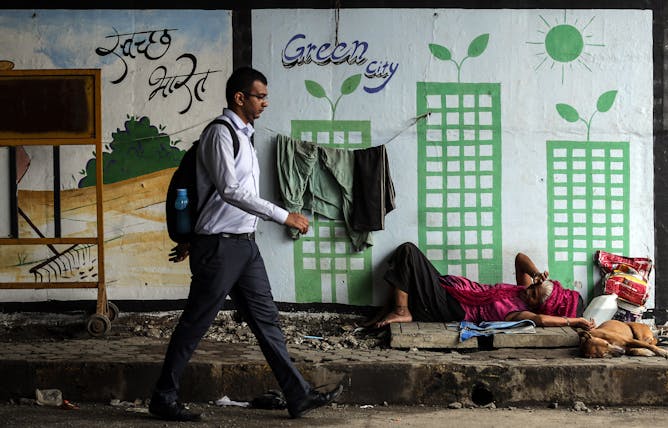|
|
|
|
Over the past decades, poverty has fallen across the world. Now, there are warnings that the economic shock of the pandemic could push an additional 400 million people into extreme poverty. Andy Sumner, Christopher Hoy and Eduardo Ortiz-Juarez unpack their research which shows that the poverty impact of the COVID-19 crisis will soon be felt in three key ways: a rise in poverty levels, more severe poverty and a change in where poverty is located in the world.
It’s two years since Prime Minister Abiy Ahmed came to power in Ethiopia. In the intervening 24 months, considerable progress has been made towards peace and stability in the country. Abiy’s biggest achievement has been the dismantling of the ruling Ethiopian People’s Revolutionary Democratic Front, and the launch of the new Prosperity Party. But the transition is proving fraught with danger, including the emergence of pockets of resistance. If the tensions aren’t handled properly, Ethiopia’s path to reform could be stopped in its tracks, argues Yohannes Gedamu.
|
Rob Reddick
Commissioning Editor, COVID-19
|

|
|

India is one country where poverty levels are expected to rise.
EPA-EFE
Andy Sumner, King's College London; Christopher Hoy, Australian National University; Eduardo Ortiz-Juarez, King's College London
The virus threatens to push half a billion people into extreme poverty around the world.
|

Prime Minister Abiy Ahmed speaking during a press conference on general elections in Addis Ababa, Ethiopia.
Minasse Wondimu Hailu/Anadolu Agency via Getty Images
Yohannes Gedamu, Georgia Gwinnett College
The country must urgently address the politics of ethnicity before it can move towards a workable democracy.
|
Science + Technology
|

Harun Šiljak, Trinity College Dublin
The Micius satellite has enabled messages with unbreakable encryption to be sent 1,200km.
| |

Chris Elliott, Queen's University Belfast; Gonçalo Rosas da Silva, Queen's University Belfast; Joost Laurus Dinant Nelis, Queen's University Belfast
Mobile devices can be turned into tools to rapidly identify a variety of disease-causing agents, including bacteria, toxins and viruses.
|
|
|
Health + Medicine
|

Peter Cockerill, University of Birmingham; David C. Wraith, University of Birmingham
Our research has found a way of switching immune system cells from attacking to protecting.
| |

Adam Kleczkowski, University of Strathclyde
K is all about the super-spreaders.
|
|
|
En Français
|

Anne Lambert, Institut National d'Études Démographiques (INED); Catherine Bonvalet, Institut National d'Études Démographiques (INED); Elie GUERAUT, Institut National d'Études Démographiques (INED); Guillaume Le Roux, Institut National d'Études Démographiques (INED); Joanie Cayouette-Remblière, Institut National d'Études Démographiques (INED); Laetitia Langlois, Institut National d'Études Démographiques (INED); Violaine Girard, Université de Rouen Normandie
Les résultats d'une enquête inédite montrent que le confinement n'a pas donné lieu à un élan massif de solidarité nationale.
| |

Erick Cakpo, Université de Lorraine
On assiste aux États-Unis comme en Europe à des actes de vandalisme et de déboulonnage de statues de certaines figures emblématiques de l’histoire occidentale.
|
|
|
| |
| |
| |
| |
| |
| |
|
|
|
|
|
|
|